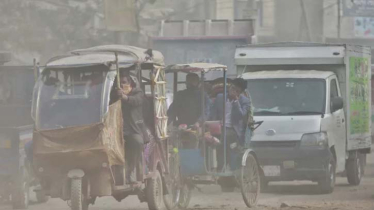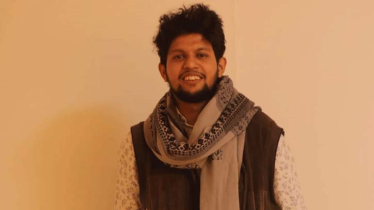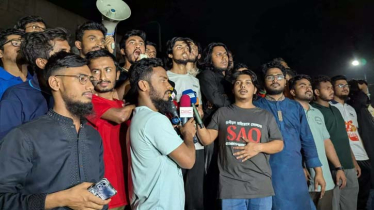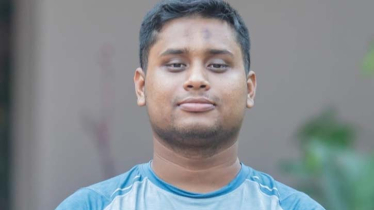
Photo : Courtesy
Russian House in Dhaka, Bangladesh National Museum and Muktijoddha Academy Trust jointly organized a special discussion, cultural programs and honoring of the brave freedom fighters on the occasion of celebrating the 52nd anniversary of Bangladesh's Great Victory Day.
This event was held at the National Museum of the Capital on On Saturday morning (9 December). On this occasion, the organizers honored a total of 84 freedom fighters, including 52 brave freedom fighters on the battlefield and the background artist soldiers of Swadhin Bangla Betar Kendra.
Russian House in Dhaka director Pavel Dvoichenkov, Director General of Bangladesh National Museum, Md. Kamruzzaman, Muktijudda Academy Trust Chairman, Dr. Abul Kalam Azad, Former Secretary of the Ministry of Liberation War Affairs, Taj Mohammad, brave freedom fighter, Former Vice-Chancellor, Bangladesh Agricultural University, Mymensingh-Freedom Fighter Professor Dr. Md. Rafiqul Haque; and Former Vice-Chancellor, University of Global Village-Freedom Fighter Professor Dr. Jahangir Alam Khan were present as guests on the occasion.
The program started with the performance of the National Anthem by all. The director of the Russian House in Dhaka, Mr. Pavel Dvoychenkov inaugurated the event. Congratulating everyone on the victory, he said in his speech that the Great Victory Day of Bangladesh is a day of glory for both our countries.
This day reminds us of our historic victory. Bangladesh-Russia friendly relations are historical. On the day of the 1971 revolution, the Soviet Union stood by Bangladesh. The relationship between the two countries was developed by supporting Bangladesh in the liberation war. Since then, Russia has been working for the economic development of Bangladesh. Russia helped build large industries and power plants.
The journey of this historic relationship started with the official visit of Father of the Nation Bangabandhu Sheikh Mujibur Rahman to the Soviet Union in 1972. Intergovernmental agreements on economic and technical cooperation, trade representation, cultural, educational, and scientific cooperation were signed during Bangabandhu visit.
At the request of Bangabandhu, the Soviet Navy, with the direct cooperation of the then Soviet Government, deactivated the Chittagong port and made the port fully operational. During the visit, at the special request of Bangabandhu, a large number of students from Bangladesh in the then Soviet Union went to study in Russia with full government scholarships. Later they returned to the country and became active in the formation of Bangabandhu Sonar Bangla. Among them, more than 6,000 Soviet and Russian graduates are currently working and holding high positions in Bangladesh and various countries around the world.
He also said that the Russian government has increased the number of scholarships for Bangladeshi students to 124 in the academic year 2024-2025 due to the increasing interest of Bangladeshi students in pursuing higher education in Russia. He also assured that he would continue his efforts to increase the number of these scholarships in the future. The Russian House in Dhaka is working hard to promote higher education opportunities in Russia as well as Russian language courses for Bangladeshi students.

Director General of the Bangladesh National Museum, Md. Kamruzzaman, said the Liberation War is a memorable chapter in the history of our nation. Our brave freedom fighters have shown outstanding bravery in this war. We are eternally grateful to them for their contribution.
Chairman of Muktijudda Academy Trust, Abul Azad, said freedom fighters are the best children of our nation. It is our duty to respect them. Through this program we want to show respect and gratitude to our brave freedom fighters.
After the discussion, a cultural program was organized. Liberation War songs and poems were performed on the occasion. The freedom fighters present at the event shared their experiences and feelings.
Messenger/Sajib








